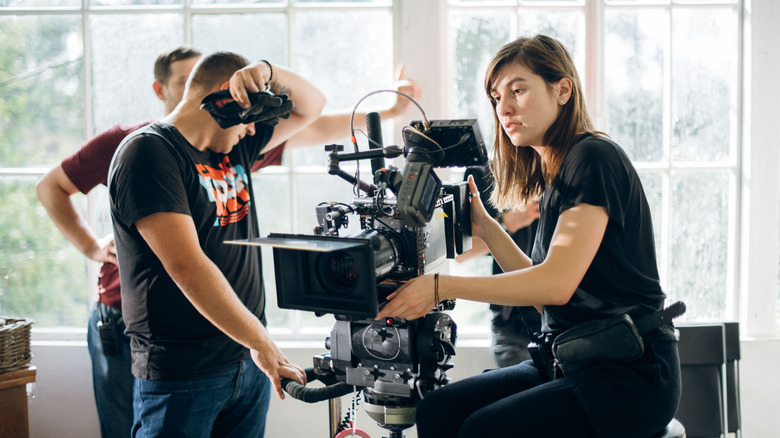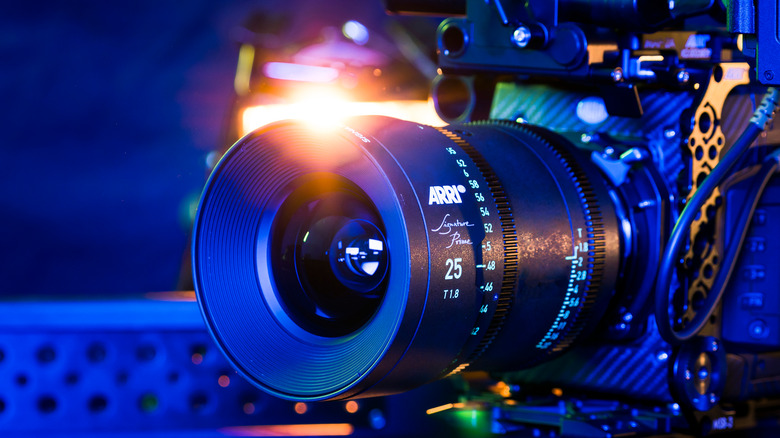Director Of Photography Vs Cinematographer: What's The Difference?
A lot of work goes into making a movie or an episode of TV. Dozens, sometimes hundreds of people are involved across a variety of roles, not just in front of the camera but behind it, or back in an editing suite, or crunching numbers in a production office. While roles like director and screenwriter are well-known to anyone with an interest in film, fewer people are aware of the roles and duties of cinematographers and directors of photography (DP). Is there even a difference between the two?
The simple answer is no. Both terms refer to the person in charge of the camera and lighting departments, responsible for interpreting the director's vision into the visuals of the movie (via VMG Studios). The difference in title comes down to personal choice, which can change depending on the country of origin, year, and genre of the movie. While DP tends to be preferred over cinematographer in general, but in genres like musicals and countries like Mexico, cinematographer is the preferred term; it's all semantics in the end.
Other roles get confused with DP
Though cinematographer and director of photography are two terms for the same role, there are other on-set jobs that often get mixed up with that role. According to Masterclass, the DP often is separate from the camera operator, unless on a low-budget production. Most large productions will have a whole team around the camera, one to operate the camera itself, one to operate the Steadicam system, one to pull focus, and another to operate the clapboard. All these people are under the direction of the DP, and typically don't have much creative say; just as the cinematographer is interpreting the director's vision, the camera operators and assistants must follow the cinematographer's vision.
Another distinct role is the videographer. Videographers have similar duties to a DP: They frame shots and direct a camera (via VMG Studios). The difference is that videographers work on their own and are typically hired for events like weddings or news stories. Their work is less focused on storytelling and more on capturing footage. A good rule of thumb is that if the footage is the primary focus of an event, like a movie shoot, you need a cinematographer; if footage is secondary, call a videographer.

